- Home
- George Orwell
Shooting an Elephant Page 2
Shooting an Elephant Read online
Page 2
When I was about sixteen I suddenly discovered the joy of mere words, i.e. the sounds and associations of words. The lines from Paradise Lost,
So hee with difficulty and labour hard
Moved on: with difficulty and labour hee,
which do not now seem to me so very wonderful, sent shivers down my backbone; and the spelling 'hee' for 'he' was an added pleasure. As for the need to describe things, I knew all about it already. So it is clear what kind of books I wanted to write, in so far as I could be said to want to write books at that time. I wanted to write enormous naturalistic novels with unhappy endings, full of detailed descriptions and arresting similes, and also full of purple passages in which words were used partly for the sake of their sound. And in fact my first complete novel, Burmese Days, which I wrote when I was thirty but projected much earlier, is rather that kind of book.
I give all this background information because I do not think one can assess a writer's motives without knowing something of his early development. His subject-matter will be determined by the age he lives in - at least this is true in tumultuous, revolutionary ages like our own - but before he ever begins to write he will have acquired an emotional attitude from which he will never completely escape. It is his job, no doubt, to discipline his temperament and avoid getting stuck at some immature stage, or in some perverse mood: but if he escapes from his early influences altogether, he will have killed his impulse to write. Putting aside the need to earn a living, I think there are four great motives for writing, at any rate for writing prose. They exist in different degrees in every writer, and in any one writer the proportions will vary from time to time, according to the atmosphere in which he is living. They are:
1. Sheer egoism. Desire to seem clever, to be talked about, to be remembered after death, to get your own back on grown-ups who snubbed you in childhood, etc. etc. It is humbug to pretend that this is not a motive, and a strong one. Writers share this characteristic with scientists, artists, politicians, lawyers, soldiers, successful businessmen - in short, with the whole top crust of humanity. The great mass of human beings are not acutely selfish. After the age of about thirty they abandon individual ambition - in many cases, indeed, they almost abandon the sense of being individuals at all - and live chiefly for others, or are simply smothered under drudgery. But there is also the minority of gifted, wilful people who are determined to live their own lives to the end, and writers belong in this class. Serious writers, I should say, are on the whole more vain and self-centred than journalists, though less interested in money.
2. Aesthetic enthusiasm. Perception of beauty in the external world, or, on the other hand, in words and their right arrangement. Pleasure in the impact or one sound on another, in the firmness of good prose or the rhythm of a good story. Desire to share an experience which one feels is valuable and ought not to be missed. The aesthetic motive is very feeble in a lot of writers, but even a pamphleteer or a writer of textbooks will have pet words and phrases which appeal to him for non-utilitarian reasons; or he may feel strongly about typography, width of margins, etc. Above the level of a railway guide, no book is quite free from aesthetic considerations.
3. Historical impulse. Desire to see things as they are, to find out true facts and store them up for the use of posterity.
4. Political purpose - using the word 'political' in the widest possible sense. Desire to push the world in a certain direction, to alter other people's idea of the kind of society that they should strive after. Once again, no book is genuinely free from political bias. The opinion that art should have nothing to do with politics is itself a political attitude.
It can be seen how these various impulses must war against one another, and how they must fluctuate from person to person and from time to time. By nature - taking your 'nature' to be the state you have attained when you are first adult - I am a person in whom the first three motives would outweigh the fourth. In a peaceful age I might have written ornate or merely descriptive books, and might have remained almost unaware of my political loyalties. As it is I have been forced into becoming a sort of pamphleteer. First I spent five years in a unsuitable profession (the Indian Imperial Police, in Burma), and then I underwent poverty and the sense of failure. This increased my natural hatred of authority and made me for the first time fully aware of the existence of the working classes, and the job in Burma had given me some understanding of the nature of imperialism: but these experiences were not enough to give me an accurate political orientation. Then came Hitler, the Spanish Civil War, etc. By the end of 1935 I had still failed to reach a firm decision. I remember a little poem that I wrote at that date, expressing my dilemma:
A happy vicar I might have been
Two hundred years ago,
To preach upon eternal doom
And watch my walnuts grow
But born, alas, in an evil time,
I missed that pleasant haven,
For the hair has grown on my upper lip
And the clergy are all clean-shaven.
And later still the times were good,
We were so easy to please,
We rocked our troubled thoughts to sleep
On the bosoms of the trees.
All ignorant we dared to own
The joys we now dissemble;
The greenfinch on the apple bough
Could make my enemies tremble.
But girls' bellies and apricots,
Roach in a shaded stream,
Horses, ducks in flight at dawn,
All these are a dream.
It is forbidden to dream again;
We maim our joys or hide them;
Horses are made of chromium steel
And little fat men shall ride them.
I am the worm who never turned,
The eunuch without a harem;
Between the priest and the commissar
I walk like Eugene Aram;
And the commissar is telling my fortune
While the radio plays,
But the priest has promised an Austin Seven,
For Duggie always pays.
I dreamed I dwelt in marble halls,
And woke to find it true;
I wasn't born for an age like this;
Was Smith? Was Jones? Were you?1
The Spanish war and other events in 1936-7 turned the scale and thereafter I knew where I stood. Every line of serious work that I have written since 1936 has been written, directly or indirectly, against totalitarianism and for democratic Socialism, as I understand it. It seems to me nonsense, in a period like our own, to think that one can avoid writing of such subjects. Everyone writes of them in one guise or another. It is simply a question of which side one takes and what approach one follows. And the more one is conscious of one's political bias, the more chance one has of acting politically without sacrificing one's aesthetic and intellectual integrity.
What I have most wanted to do throughout the past ten years is to make political writing into an art. My starting point is always a feeling of partisanship, a sense of injustice. When I sit down to write a book, I do not say to myself, 'I am going to produce a work of art.' I write it because there is some lie that I want to expose, some fact to which I want to draw attention, and my initial concern is to get a hearing. But I could not do the work of writing a book, or even a long magazine article, if it were not also an aesthetic experience. Anyone who cares to examine my work will see that even when it is downright propaganda it contains much that a full-time politician would consider irrelevant. I am not able, and I do not want, completely to abandon the world-view that I acquired in childhood. So long as I remain alive and well I shall continue to feel strongly about prose style, to love the surface of the earth, and to take pleasure in solid objects and scraps of useless information. It is no use trying to suppress that side of myself. The job is to reconcile my ingrained likes and dislikes with the essentially public, non-individual activities that this age forces on all of us.
It is not easy. It raises problems of construction and of language, and it raises in a new way the problem of truthfulness. Let me give just one example of the cruder kind of difficulty that arises. My book about the Spanish Civil War, Homage to Catalonia, is, of course, a frankly political book, but in the main it is written with a certain detachment and regard for form. I did try very hard in it to tell the whole truth without violating my literary instincts. But among other things it contains a long chapter, full of newspaper quotations and the like, defending Trotskyists who were accused of plotting with Franco. Clearly such a chapter, which after a year or two would lose its interest for any ordinary reader, must ruin the book. A critic whom I respect read me a lecture about it. 'Why did you put in all that stuff?' he said. 'You've turned what might have been a good book into journalism.' What he said was true, but I could not have done otherwise. I happened to know, what very few people in England had been allowed to know, that innocent men were being falsely accused. If I had not been angry about that I should never have written the book.
In one form or another this problem comes up again. The problem of language is subtler and would take too long to discuss. I will only say that of later years I have tried to write less picturesquely and more exactly. In any case I find that by the time you have perfected any style of writing, you have always outgrown it. Animal Farm was the first book in which I tried, with full consciousness of what I was doing, to fuse political purpose and artistic purpose into one whole. I have not written a novel for seven years, but I hope to write another fairly soon. It is bound to be a failure, every book is a failure, but I know with some clarity what kind of book I want to write.
Looking back through the last page or two, I see that I have made it appear as though my motives in writing were wholly public-spirited. I don't want to leave that as the final impression. All writers are vain, selfish and lazy, and at the very bottom of their motives there lies a mystery. Writing a book is a horrible, exhausting struggle, like a long bout of some painful illness. One would never undertake such a thing if one were not driven on by some demon whom one can neither resist nor understand. For all one knows that demon is simply the same instinct that makes a baby squall for attention. And yet it is also true that one can write nothing readable unless one constantly struggles to efface one's own personality. Good prose is like a window pane. I cannot say with certainty which of my motives are the strongest, but I know which of them deserve to be followed. And looking back through my work, I see that it is invariably where I lacked a political purpose that I wrote lifeless books and was betrayed into purple passages, sentences without meaning, decorative adjectives and humbug generally.
1946
The Spike
It was late afternoon. Forty-nine of us, forty-eight men and one woman, lay on the green waiting for the spike to open. We were too tired to talk much. We just sprawled about exhaustedly, with home-made cigarettes sticking out of our scrubby faces. Overhead the chestnut branches were covered with blossom, and beyond that great woolly clouds floated almost motionless in a clear sky. Littered on the grass, we seemed dingy, urban riff-raff. We defiled the scene, like sardine-tins and paper bags on the seashore.
What talk there was ran on the Tramp Major of this spike. He was a devil, everyone agreed, a tartar, a tyrant, a bawling, blasphemous, uncharitable dog. You couldn't call your soul your own when he was about, and many a tramp had he kicked out in the middle of the night for giving a back answer. When you came to be searched he fair held you upside down and shook you. If you were caught with tobacco there was hell to pay, and if you went in with money (which is against the law) God help you.
I had eightpence on me. 'For the love of Christ, mate,' the old hands advised me, 'don't you take it in. You'd get seven days for going into the spike with eightpence!'
So I buried my money in a hole under the hedge, marking the spot with a lump of flint. Then we set about smuggling our matches and tobacco, for it is forbidden to take these into nearly all spikes, and one is supposed to surrender them at the gate. We hid them in our socks, except for the twenty or so per cent who had no socks, and had to carry the tobacco in their boots, even under their very toes. We stuffed our ankles with contraband until anyone seeing us might have imagined an outbreak of elephantiasis. But it is an unwritten law that even the sternest Tramp Majors do not search below the knee, and in the end only one man was caught. This was Scotty, a little hairy tramp with a bastard accent sired by cockney out of Glasgow. His tin of cigarette ends fell out of his sock at the wrong moment, and was impounded.
At six the gates swung open and we shuffled in. An official at the gate entered our names and other particulars in the register and took our bundles away from us. The woman was sent off to the workhouse, and we others into the spike. It was a gloomy, chilly, limewashed place, consisting only of a bathroom and diningroom and about a hundred narrow stone cells. The terrible Tramp Major met us at the door and herded us into the bathroom to be stripped and searched. He was a gruff, soldierly man of forty, who gave the tramps no more ceremony than sheep at the dipping-pond, shoving them this way and that and shouting oaths in their faces. But when he came to myself, he looked hard at me, and said:
'You are a gentleman?'
'I suppose so,' I said.
He gave me another long look. 'Well, that's bloody bad luck, guv'nor,' he said, 'that's bloody bad luck, that is.' And thereafter he took it into his head to treat me with compassion, even with a kind of respect.
It was a disgusting sight, that bathroom. All the indecent secrets of our underwear were exposed; the grime, the rents and patches, the bits of string doing duty for buttons, the layers upon layers of fragmentary garments, some of them mere collections of holes, held together by dirt. The room became a press of steaming nudity, the sweaty odours of the tramps competing with the sickly, sub-faecal stench native to the spike. Some of the men refused the bath, and washed only their 'toe-rags', the horrid, greasy little clouts which tramps bind round their feet. Each of us had three minutes in which to bathe himself. Six greasy, slippery roller towels had to serve for the lot of us.
When we had bathed our own clothes were taken away from us, and we were dressed in the workhouse shirts, grey cotton things like nightshirts, reaching to the middle of the thigh. Then we were sent into the diningroom, where supper was set out on the deal tables. It was the invariable spike meal, always the same, whether breakfast, dinner or supper - half a pound of bread, a bit of margarine, and a pint of so-called tea. It took us five minutes to gulp down the cheap, noxious food. Then the Tramp Major served us with three cotton blankets each, and drove us off to our cells for the night. The doors were locked on the outside a little before seven in the evening, and would stay locked for the next twelve hours.
The cells measured eight feet by five, and had no lighting apparatus except a tiny, barred window high up in the wall, and a spyhole in the door. There were no bugs, and we had bedsteads and straw palliasses, rare luxuries both. In many spikes one sleeps on a wooden shelf, and in some on the bare floor, with a rolled-up coat for a pillow. With a cell to myself, and a bed, I was hoping for a sound night's rest. But I did not get it, for there is always something wrong in the spike, and the peculiar shortcoming here, as I discovered immediately, was the cold. May had begun, and in honour of the season - a little sacrifice to the gods of spring, perhaps - the authorities had cut off the steam from the hot pipes. The cotton blankets were almost useless. One spent the night in turning from side to side, falling asleep for ten minutes and waking half frozen, and watching for dawn.
As always happens in the spike, I had at last managed to fall comfortably asleep when it was time to get up. The Tramp Major came marching down the passage with his heavy tread, unlocking the doors and yelling to us to show a leg. Promptly the passage was full of squalid shirt-clad figures rushing for the bathroom, for there was only one tub full of water between us all in the morning, and it was first come first served. When I arrived twenty t
ramps had already washed their faces. I gave one glance at the black scum on top of the water, and decided to go dirty for the day.
We hurried into our clothes, and then went to the diningroom to bolt our breakfast. The bread was much worse than usual, because the military-minded idiot of a Tramp Major had cut it into slices overnight, so that it was as hard as ship's biscuit. But we were glad of our tea after the cold, restless night. I do not know what tramps would do without tea, or rather the stuff they miscall tea. It is their food, their medicine, their panacea for all evils. Without the half gallon or so of it that they suck down a day, I truly believe they could not face existence.
After breakfast we had to undress again for the medical inspection, which is a precaution against smallpox. It was three quarters of an hour before the doctor arrived, and one had time now to look about him and see what manner of men we were. It was an instructive sight. We stood shivering naked to the waist in two long ranks in the passage. The filtered light, bluish and cold, lighted us up with unmerciful clarity. No one can imagine, unless he has seen such a thing, what pot-bellied, degenerate curs we looked. Shock heads, hairy, crumpled faces, hollow chests, flat feet, sagging muscles - every kind of malformation and physical rottenness were there. All were flabby and discoloured, as all tramps are under their deceptive sunburn. Two or three figures seen there stay ineradicably in my mind. Old 'Daddy', aged seventy-four, with his truss, and his red, watering eyes: a herring-gutted starveling, with sparse beard and sunken cheeks, looking like the corpse of Lazarus in some primitive picture: an imbecile, wandering hither and thither with vague giggles, coyly pleased because his trousers constantly slipped down and left him nude. But few of us were greatly better than these; there were not ten decently built men among us, and half, I believe, should have been in hospital.
This being Sunday, we were to be kept in the spike over the week-end. As soon as the doctor had gone we were herded back to the diningroom, and its door shut upon us. It was a limewashed, stone-floored room, unspeakably dreary with its furniture of deal boards and benches, and its prison smell. The windows were so high up that one could not look outside, and the sole ornament was a set of Rules threatening dire penalties to any casual who misconducted himself. We packed the room so tight that one could not move an elbow without jostling somebody. Already, at eight o'clock in the morning, we were bored with our captivity. There was nothing to talk about except the petty gossip of the road, the good and bad spikes, the charitable and uncharitable counties, the iniquities of the police and the Salvation Army. Tramps hardly ever get away from these subjects; they talk, as it were, nothing but shop. They have nothing worthy to be called conversation, because emptiness of belly leaves no speculation in their souls. The world is too much with them. Their next meal is never quite secure, and so they cannot think of anything except the next meal.

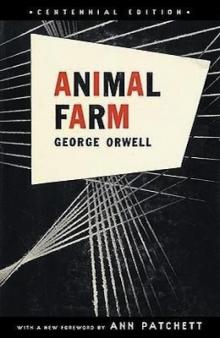 Animal Farm & 1984
Animal Farm & 1984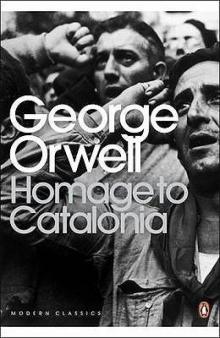 Homage to Catalonia
Homage to Catalonia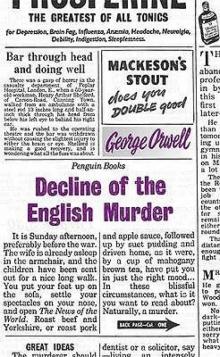 Decline of the English Murder
Decline of the English Murder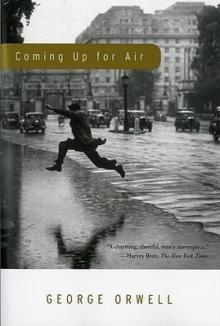 Coming Up for Air
Coming Up for Air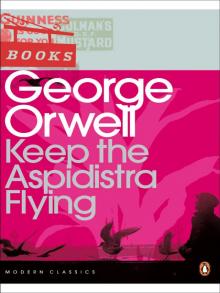 Keep the Aspidistra Flying
Keep the Aspidistra Flying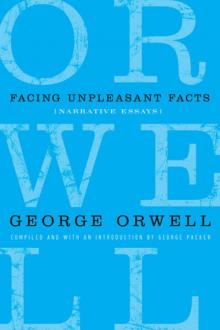 Facing Unpleasant Facts: Narrative Essays
Facing Unpleasant Facts: Narrative Essays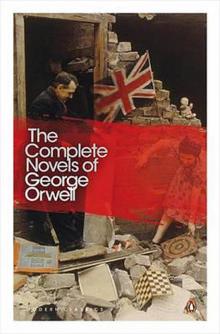 The Complete Novels of George Orwell
The Complete Novels of George Orwell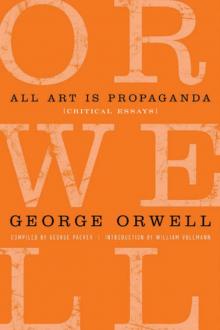 All Art Is Propaganda: Critical Essays
All Art Is Propaganda: Critical Essays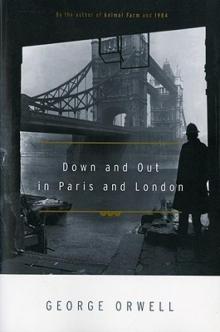 Down and Out in Paris and London
Down and Out in Paris and London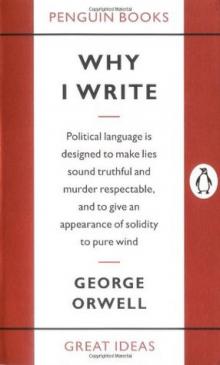 Why I Write
Why I Write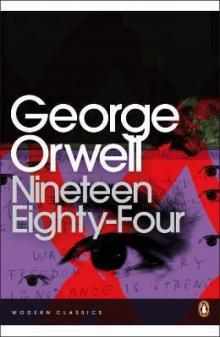 Nineteen Eighty-Four
Nineteen Eighty-Four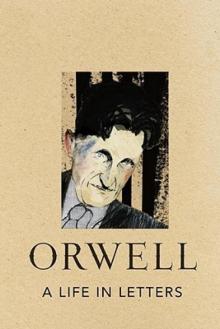 A Life in Letters
A Life in Letters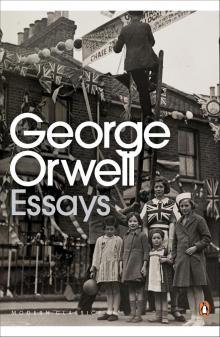 Essays
Essays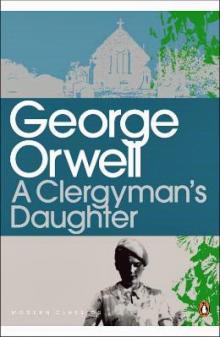 A Clergyman's Daughter
A Clergyman's Daughter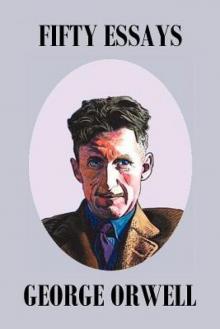 Fifty Orwell Essays
Fifty Orwell Essays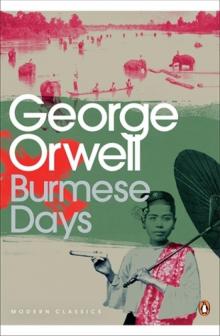 Burmese Days
Burmese Days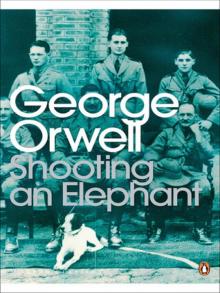 Shooting an Elephant
Shooting an Elephant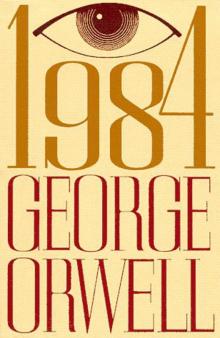 1984 (Penguin)
1984 (Penguin)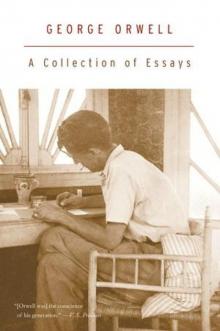 A Collection of Essays
A Collection of Essays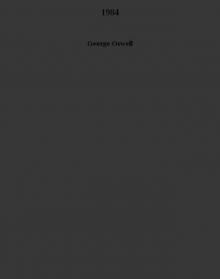 1984
1984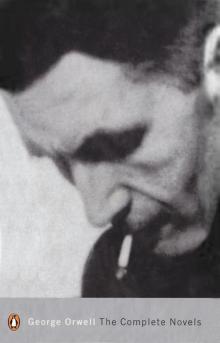 The Complete Novels
The Complete Novels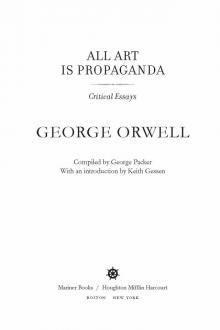 All Art Is Propaganda
All Art Is Propaganda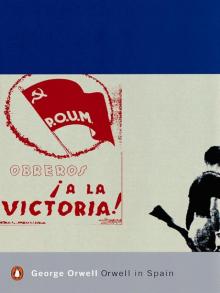 Orwell in Spain
Orwell in Spain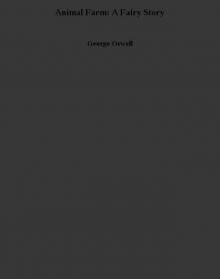 Animal Farm: A Fairy Story
Animal Farm: A Fairy Story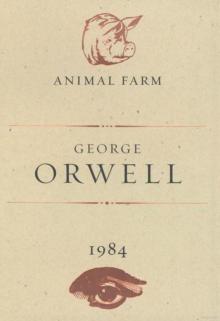 Animal Farm and 1984
Animal Farm and 1984